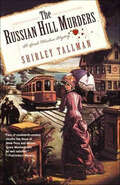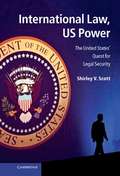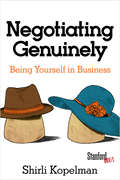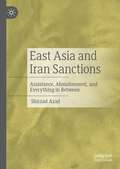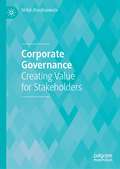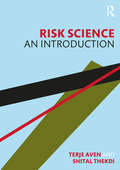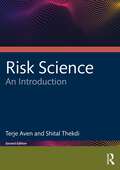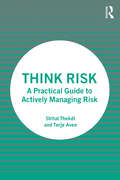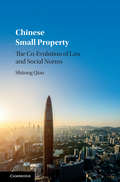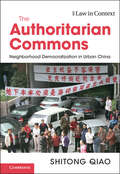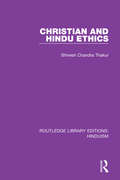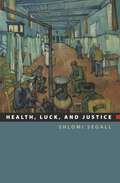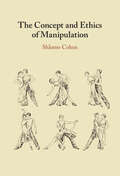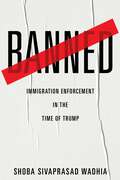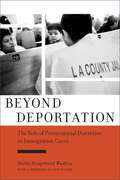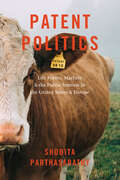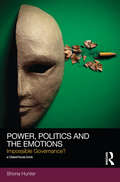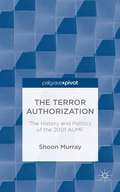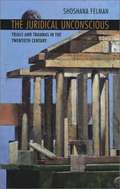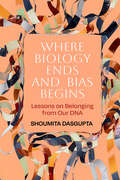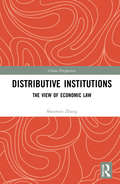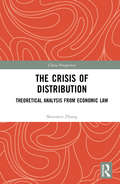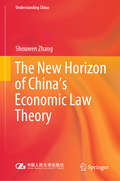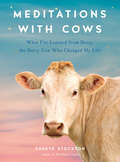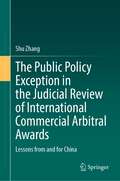- Table View
- List View
The Russian Hill Murders: A Sarah Woolson Mystery (Sarah Woolson Mysteries #2)
by Shirley TallmanThough her own San Francisco law firm barely tolerates her, gutsy young attorney Sarah Woolson flouts proper feminine behavior in this nineteenth-century answer to Legally Blonde. While her mother begs her to settle down, her chauvinistic boss tries to come up with ever more spiteful ways to pressure his only female associate into quitting. Naturally, Sarah digs in her heels and vows to retain her position at any cost. Besides, she has no intention of straying too far from the action.When the wife of wealthy society entrepreneur Leonard Godfrey drops dead of an apparent heart attack at a charity dinner for the new Women and Children's Hospital, Sarah's curiosity gets the better of her. But no one will believe in her theory that Caroline Godfrey's death was not natural---until several more people affiliated with the hospital die of inexplicable causes.Meanwhile, when a pregnant widow whose husband has died in a sweatshop fire asks for Sarah's help in finding the owner so that she can sue for recompense, our feisty heroine insists on taking the case against her boss's orders. With the help of her colleague Robert Campbell and an eager young hansom cabdriver named Eddie, Sarah goes on a manhunt for Killy Doyle, the menacing head of the factory underworld. But she can't ignore the mysterious deaths at the Women and Children's Hospital---especially when the hospital's Chinese chef is arrested for the murders and the Chinese community's most powerful Tong Lord asks her to defend him.Faced with her first criminal trial, Sarah stops at nothing to determine the killer's identity. But in trying to exonerate her client, she places her own life in danger. Will Sarah figure out who the murderer is, or will she be the final victim?
International Law, Us Power
by Shirley V. ScottObservers of the USA's attitude towards international law seem to be perpetually taken aback by its actions, whether those relate to the use of force, the International Criminal Court or human rights. This book sets out to articulate the considerable degree of continuity in the nature of US engagement with international law. International Law, US Power explains that the USA has throughout its history pursued a quest for defensive and offensive legal security and that this was a key ingredient in the rise of the USA. Although skilful strategic involvement with international law was an ingredient in the USA 'winning' the Cold War, the rise of China and the growing negotiating strength of leading developing countries mean that the USA is likely to find it increasingly difficult to use the same set of techniques in the future.
Negotiating Genuinely: Being Yourself in Business
by Shirli KopelmanWe often assume that strategic negotiation requires us to wall off vulnerable parts of ourselves and act rationally to win. But, what if you could just be you in business? Taking a positive approach, this brief distills years of research, teaching, and coaching into an integrated framework for negotiating genuinely. One of the most fundamental and challenging battlegrounds in our work lives, negotiation calls on us to compete and cooperate to do our jobs well and achieve extraordinary results. But, the biggest challenge in a negotiation is to be strategic while also being real. Author Shirli Kopelman argues that this duality is both possible and powerful. In Negotiating Genuinely, she teaches readers how to reconcile the disparate hats that they wear in everyday life—with families, friends, and colleagues—bringing one "integral hat" to the negotiation table. Kopelman develops and shares techniques that illuminate this approach; exercises along the way help readers to negotiate more naturally, positively, and successfully.
East Asia and Iran Sanctions: Assistance, Abandonment, and Everything in Between
by Shirzad AzadThis book explores how international sanctions on Iran reshaped the contours of East Asia’s interactions with the Middle Eastern state. Almost all East Asian political entities, from the industrialized and developed nations of Japan and South Korea, to the communist and developing countries of China and North Korea, have become major international partners of Iran over the past several decades. In addition, East Asian states were, by and large, thought to be among leading foreign beneficiaries of Iran sanctions, and the overall impacts of sanctions in transforming both the scope and size of their rather multifaceted connections to the Middle Eastern country have been consequential. Despite its significance, academic studies about this topic have remained sparse and scattered. This book aims to partially fill that research lacuna by surveying all relevant information and data available in the archives of several languages, including Chinese, English, Japanese, Korean, and Persian. While the book strives to cover the entire sanctions period, most of the analysis focuses on the past one and a half decades, when Iran came under the severest sets of international sanctions. It was during this particular time period that international quandary over the Iranian nuclear program led to a slew of far-reaching penalties and stringent restrictions levied against Iranians by the United Nations and the United States. These recent waves of international sanctions and limitations transformed many quintessential characteristics of East Asia’s interactions with Iran. Such sanctions-induced critical developments and changes, moreover, are bound to play an instrumental role in the direction and volume of exchanges between East Asian states and Iran in the coming years and decades.
Corporate Governance: Creating Value for Stakeholders
by Shital JhunjhunwalaThe book covers the broad area of Corporate Governance (CG) and its constituents. It includes new and contemporary topics such as CG in family-controlled businesses, governance of multinational corporations, related party transactions and impact investing. It is a blend of theory and practice, and presents cases old and new, from Maxwell to Tata Sons, from both the western and eastern hemisphere to facilitate the understanding of CG issues. The book brings together governance frameworks of different countries in one place. For instance, when ‘appointment of auditors’ is discussed the UK code, US laws, EU Audit legislation 2016 and Indian rules are covered. It includes latest and novel regulations such as CSR in India.
Risk Science: An Introduction
by Terje Aven Shital ThekdiRisk science is becoming increasingly important as businesses, policymakers and public sector leaders are tasked with decision-making and investment using varying levels of knowledge and information. Risk Science: An Introduction explores the theory and practice of risk science, providing concepts and tools for understanding and acting under conditions of uncertainty. The chapters in this work cover the fundamental concepts, principles, approaches, methods and models for how to understand, assess, communicate, manage and govern risk. These topics are presented and examined in a way which details how they relate, for example, how to characterize and communicate risk with particular emphasis on reflecting uncertainties; how to distinguish risk perception and professional risk judgments; how to assess risk and guide decision-makers, especially for cases involving large uncertainties and value differences; and how to integrate risk assessment with resilience-based strategies. The text provides a variety of examples and case studies that relate to highly visible and relevant issues facing risk academics, practitioners and non-risk leaders who must make risk-related decisions. Presenting both the foundational and most recent advancements in the subject matter, this work particularly suits students of risk science courses at college and university level. The book also provides broader key reading for students and scholars in other domains, including business, engineering and public health.
Risk Science: An Introduction
by Terje Aven Shital ThekdiRisk science is becoming increasingly important as businesses, policymakers and public sector leaders are tasked with decision-making and investment using varying levels of knowledge and information. Risk Science: An Introduction explores the theory and practice of risk science, providing concepts and tools for understanding and acting under conditions of uncertainty.The chapters in this book cover the fundamental concepts, principles, approaches, methods and models for how to understand, assess, communicate, manage and govern risk. These topics are presented and examined in a way which details how they relate, for example, how to characterize and communicate risk with particular emphasis on reflecting uncertainties; how to distinguish risk perception and professional risk judgments; how to assess risk and guide decision-makers, especially for cases involving large uncertainties and value differences; and how to integrate risk assessment with resilience-based strategies. The text provides a variety of examples and case studies that relate to highly visible and relevant issues facing risk academics, practitioners and non-risk leaders who must make risk-related decisions.This revised and updated second edition features an entirely new chapter on the integrity and quality of risk studies, and dealing with misinformation in the context of risk. Presenting both the foundational and most recent advancements in the subject matter, this work particularly suits students of risk science courses at college and university level. The book also provides broader key reading for students and scholars in other domains, including business, engineering and public health.
Think Risk: A Practical Guide to Actively Managing Risk
by Terje Aven Shital ThekdiRisk is the single most prevalent and enduring factor that influences every individual, organization, and society. People often seek protection from negative risk events, but also seek to take advantage of opportunities arising from positive risk events. We may feel overwhelmed by messages encountered in daily interactions with media and society, contributing to a sense of ambiguity over how to act in response to risk-related information and misinformation. We seek to leverage evidence and reason to find our own balance between both positive and negative outcomes in an uncertain world. This groundbreaking book delivers practical concepts and tools that empower readers to leverage innovations in risk science to improve their abilities to interpret, assess, communicate, and handle risk. It provides a practical non-quantitative approach to understanding the risk and making better decisions involving risk. Think RISK covers several key themes in risk science: a) the main goals and strategies for understanding and managing risk; b) how readers can inform their risk stances by considering their own individual values and mission; c) the difference between risk and safety, and how that difference is critical for managing the risk; d) the role of psychological factors when understanding and managing the risk; e) the role of communication when understanding and managing the risk; and f) the general importance and incentives for effectively understanding and managing the risk. Written for business professionals in all private and public sectors, this book will also be relevant to non-business professionals such as medical practitioners and policymakers and would be an ideal fit for executive education and seminar-style courses in universities, corporate book clubs, and training seminars. Because it’s based on foundational and scientifically accepted ideas and principles, the book should remain relevant for many years.
Chinese Small Property: The Co-Evolution of Law and Social Norms
by Shitong QiaoSmall property houses provide living space to about eight million migrant workers, office space for start-ups, grassroots police stations and public schools; their contribution to the economic growth and urbanization of a city is immense. The interaction between the small property sector and the formal legal order has a long history and small property has become an established engine of social and legal change. Chinese Small Property presents vivid stories about how institutional entrepreneurs worked together to create an impersonal market outside of the formal legal system to support millions of transactions. Qiao uses an eleven-month fieldwork project in Shenzhen - China's first special economic zone that has grown to a mega city with over fifteen million people - to demonstrate this. A thorough and detailed investigation into small property rights in China, Chinese Small Property is an invaluable source of new information for students and scholars of the field.
The Authoritarian Commons: Neighborhood Democratization in Urban China (Law in Context)
by Shitong QiaoBased on six-year fieldwork across China including over 200 in-depth interviews, this book provides an ethnographic account of how hundreds of millions of Chinese homeowners practice democracy in and beyond their condominium complexes. Using interviews, survey data, and a comprehensive examination of laws, policies and judicial decisions, this book also examines how the party-state in China responds to the risks and benefits brought by neighborhood democratization. Moreover, this book provides a framework to analyze different approaches to the authoritarian dilemma facing neighborhood democratization which may increase the regime's legitimacy and expose it to the challenge of independent organizations at the same time. Lastly, this book identifies conditions under which neighborhood democratization can succeed.
Christian and Hindu Ethics (Routledge Library Editions: Hinduism #1)
by Shivesh Chandra ThakurHinduism and Christianity are different in structure and approach – but have a great deal in common in matters relating to ethics. This book, first published in 1969, is the first systematic and detailed work which attempts to bring out both the differences and similarities. The author selects some of the fundamental problems of philosophical ethics, such as the moral law – its authority and sources, moral effort and human freedom, moral failure and responsibility – and explores the respective answers of Hinduism and Christianity.
Health, Luck, and Justice
by Shlomi Segall"Luck egalitarianism"--the idea that justice requires correcting disadvantages resulting from brute luck--has gained ground in recent years and is now the main rival to John Rawls's theory of distributive justice. Health, Luck, and Justice is the first attempt to systematically apply luck egalitarianism to the just distribution of health and health care. Challenging Rawlsian approaches to health policy, Shlomi Segall develops an account of just health that is sensitive to considerations of luck and personal responsibility, arguing that people's health and the health care they receive are just only when society works to neutralize the effects of bad luck. Combining philosophical analysis with a discussion of real-life public health issues, Health, Luck, and Justice addresses key questions: What is owed to patients who are in some way responsible for their own medical conditions? Could inequalities in health and life expectancy be just even when they are solely determined by the "natural lottery" of genes and other such factors? And is it just to allow political borders to affect the quality of health care and the distribution of health? Is it right, on the one hand, to break up national health care systems in multicultural societies? And, on the other hand, should our obligation to curb disparities in health extend beyond the nation-state? By focusing on the ways health is affected by the moral arbitrariness of luck, Health, Luck, and Justice provides an important new perspective on the ethics of national and international health policy.
The Concept and Ethics of Manipulation
by Shlomo CohenEveryone is exposed to manipulation daily, and everyone manipulates too. The impact of manipulations in personal, social, and political life is enormous. Is this tragic? Is it avoidable? Is it always morally bad or regrettable? To answer these questions, we need a theory of manipulation. This book is the first comprehensive philosophical theory of manipulation. Shlomo Cohen offers a new theory on what manipulation is, distinguishing it from other kinds of influence, and assesses the basic moral status of manipulation. In contrast to prevailing views, he argues that manipulation, though often morally bad, is not inherently morally bad, and that alongside its dangers, it has a central role as a 'lubricant' of social frictions which helps to regulate social and political relations. His analysis offers a window to better understanding the ethics of the interplay of reason and power in human relations.
Banned: Immigration Enforcement in the Time of Trump
by Shoba Sivaprasad WadhiaWinner, 2020 Best Book Award, Law Category, given by the American Book FestExamines immigration enforcement and discretion during the first eighteen months of the Trump administrationWithin days of taking office, President Donald J. Trump published or announced changes to immigration law and policy. These changes have profoundly shaken the lives and well-being of immigrants and their families, many of whom have been here for decades, and affected the work of the attorneys and advocates who represent or are themselves part of the immigrant community. Banned examines the tool of discretion, or the choice a government has to protect, detain, or deport immigrants, and describes how the Trump administration has wielded this tool in creating and executing its immigration policy.Banned combines personal interviews, immigration law, policy analysis, and case studies to answer the following questions: (1) what does immigration enforcement and discretion look like in the time of Trump? (2) who is affected by changes to immigration enforcement and discretion?; (3) how have individuals and families affected by immigration enforcement under President Trump changed their own perceptions about the future?; and (4) how do those informed about immigration enforcement and discretion describe the current state of affairs and perceive the future? Shoba Sivaprasad Wadhia pairs the contents of these interviews with a robust analysis of immigration enforcement and discretion during the first eighteen months of the Trump administration and offers recommendations for moving forward.The story of immigration and the role immigrants play in the United States is significant. The government has the tools to treat those seeking admission, refuge, or opportunity in the United States humanely. Banned offers a passionate reminder of the responsibility we all have to protect America’s identity as a nation of immigrants.
Beyond Deportation: The Role of Prosecutorial Discretion in Immigration Cases (Citizenship and Migration in the Americas #4)
by Shoba Sivaprasad WadhiaThe first book to comprehensivelydescribe the history, theory, and application of prosecutorial discretion inimmigration law When Beatles star John Lennon faced deportation from the U.S. in the 1970s, his lawyer Leon Wildes made a groundbreaking argument. He argued that Lennon should be granted “nonpriority” status pursuant to INS’s (now DHS’s) policy of prosecutorial discretion. In U.S. immigration law, the agency exercises prosecutorial discretion favorably when it refrains from enforcing the full scope of immigration law. A prosecutorial discretion grant is important to an agency seeking to focus its priorities on the “truly dangerous” in order to conserve resources and to bring compassion into immigration enforcement. The Lennon case marked the first moment that the immigration agency’s prosecutorial discretion policy became public knowledge. Today, the concept of prosecutorial discretion is more widely known in light of the Obama Administration’s Deferred Action for Childhood Arrivals or DACA program, a record number of deportations and a stalemate in Congress to move immigration reform.Beyond Deportation is the first book to comprehensively describe the history, theory, and application of prosecutorial discretion in immigration law. It provides a rich history of the role of prosecutorial discretion in the immigration system and unveils the powerful role it plays in protecting individuals from deportation and saving the government resources. Shoba Sivaprasad Wadhia draws on her years of experience as an immigration attorney, policy leader, and law professor to advocate for a bolder standard on prosecutorial discretion, greater mechanisms for accountability when such standards are ignored, improved transparency about the cases involving prosecutorial discretion, and recognition of “deferred action” in the law as a formal benefit.
Patent Politics: Life Forms, Markets, and the Public Interest in the United States and Europe
by Shobita ParthasarathyOver the past thirty years, the world’s patent systems have experienced pressure from civil society like never before. From farmers to patient advocates, new voices are arguing that patents impact public health, economic inequality, morality—and democracy. These challenges, to domains that we usually consider technical and legal, may seem surprising. But in Patent Politics, Shobita Parthasarathy argues that patent systems have always been deeply political and social. To demonstrate this, Parthasarathy takes readers through a particularly fierce and prolonged set of controversies over patents on life forms linked to important advances in biology and agriculture and potentially life-saving medicines. Comparing battles over patents on animals, human embryonic stem cells, human genes, and plants in the United States and Europe, she shows how political culture, ideology, and history shape patent system politics. Clashes over whose voices and which values matter in the patent system, as well as what counts as knowledge and whose expertise is important, look quite different in these two places. And through these debates, the United States and Europe are developing very different approaches to patent and innovation governance. Not just the first comprehensive look at the controversies swirling around biotechnology patents, Patent Politics is also the first in-depth analysis of the political underpinnings and implications of modern patent systems, and provides a timely analysis of how we can reform these systems around the world to maximize the public interest.
Power, Politics and the Emotions: Impossible Governance? (Social Justice)
by Shona HunterHow can we rethink ideas of policy failure to consider its paradoxes and contradictions as a starting point for more hopeful democratic encounters? Offering a provocative and innovative theorisation of governance as relational politics, the central argument of Power, Politics and the Emotions is that there are sets of affective dynamics which complicate the already materially and symbolically contested terrain of policy-making. This relational politics is Shona Hunter’s starting point for a more hopeful, but realistic understanding of the limits and possibilities enacted through contemporary governing processes. Through this idea Hunter prioritises the everyday lived enactments of policy as a means to understand the state as a more differentiated and changeable entity than is often allowed for in current critiques of neoliberalism. But Hunter reminds us that focusing on lived realities demands a melancholic confrontation with pain, and the risks of social and physical death and violence lived through the contemporary neoliberal state. This is a state characterised by the ascendency of neoliberal whiteness; a state where no one is innocent and we are all responsible for the multiple intersecting exclusionary practices creating its unequal social orderings. The only way to struggle through the central paradox of governance to produce something different is to accept this troubling interdependence between resistance and reproduction and between hope and loss. Analysing the everyday processes of this relational politics through original empirical studies in health, social care and education the book develops an innovative interdisciplinary theoretical synthesis which engages with and extends work in political science, cultural theory, critical race and feminist analysis, critical psychoanalysis and post-material sociology.
The Terror Authorization: The History and Politics of the 2001 AUMF
by Shoon MurrayThree days after September 11, 2001, Congress passed an unprecedented authorization of the use of military force (AUMF 2001) that remains in force today. As the theatre of operation against terrorism changes, the applicability and legality of the AUMF 2001 is under increasing scrutiny - giving way to academic discussion over its current status.
The Juridical Unconscious: Trials and Traumas in the Twentieth Century
by Shoshana FelmanDeath, wrote Walter Benjamin, lends storytellers all their authority. How do trials, in turn, borrow their authority from death? This book offers a groundbreaking account of the surprising interaction betweenm trauma and justice.
Where Biology Ends and Bias Begins: Lessons on Belonging from Our DNA
by Shoumita DasguptaA geneticist and internationally recognized anti-racism educator provides a powerful, science-based rebuttal to common fallacies about human difference. Well-meaning physicians, parents, and even scientists today often spread misinformation about what biology can and can’t tell us about our bodies, minds, and identities. In this accessible, myth-busting book, geneticist Shoumita Dasgupta draws on the latest science to correct common misconceptions about how much of our social identities are actually based in genetics. Dasgupta weaves together history, current affairs, and cutting-edge science to break down how genetic concepts are misused and how we can approach scientific evidence in a socially responsible way. With a unifying and intersectional approach disentangling biology from bigotry, the book moves beyond race and gender to incorporate categories like sexual orientation, disability, and class. Where Biology Ends and Bias Begins is an invaluable, empowering resource for biologists, geneticists, science educators, and anyone working against bias in their community.
Distributive Institutions: The View of Economic Law (China Perspectives)
by Shouwen ZhangThe crisis of distribution is one of the longest standing and most complicated issues facing human society. Imbued with social, political, historic, and cultural elements, it varies significantly across different countries as a result of all these factors. As an emerging economy which transferred from a planned to a market economy, China has experienced large distribution gaps since it implemented the Reform and Opening-up Policy in the early 1980s, requiring stronger economic law to mitigate and regulate the crisis of distribution. In this second volume, the author analyses crises of distribution from a theoretical perspective and proposes law and policy solutions. Believing that such crises are a collective result of systematic limitations, the author proposes a theoretical framework of “system–distribution–development” in order to resolve distribution problems and promote economic development. He argues that a crisis of distribution cannot be avoided without coordinated development of economic law and relevant constitutional, civil, and commercial law systems. In addition, it is necessary to differentiate the territories, industries, enterprises, and individuals that constitute such diverse systems. The book should be of keen interest to researchers and students of law, economics, and political science.
The Crisis of Distribution: Theoretical Analysis from Economic Law (China Perspectives)
by Shouwen ZhangThe crisis of distribution is one of the longest standing and most complicated issues facing human society. Imbued with social, political, historic, and cultural elements, it varies significantly across different countries as a result. As an emerging economy which transferred from a planned to a market economy, China has experienced large distribution gaps since it implemented the reform and "opening-up" policy in the early 1980s, requiring stronger economic law to mitigate and regulate the crisis of distribution. In this two-volume set, the author analyzes distribution crises from a theoretical perspective, before going on to propose law and policy solutions. In this first volume, he discusses the four main concepts and focus points of the crisis of distribution – distribution itself, the crises it faces, the rule of law, and development. Concentrating on the major distribution problems China faces in particular, the author proposes regulatory methods which can be used to overcome the distribution dilemma, such as tools from policy and economic law, and reiterates the significance of theory building in resolving the issues. The book should be of keen interest to researchers and students of law, economics, and political science.
The New Horizon of China's Economic Law Theory (Understanding China)
by Shouwen ZhangThis book presents the development and reformation of economic law in China and explores the "three relationships" between the government and market, between reform and rule of law, and between the constitution and economic law. On this basis, it subsequently focuses on development theory, distribution theory, risk theory and crisis theory. Further, it addresses effective development, fair distribution, and prevention and resolution of related risks and crises, which are important functions of economic law. In order to achieve the above functions and objectives, the book argues, we must vigorously promote the integration of rule of law in economic law, and constantly refine the theory of economic rule of law employed in China.The book demonstrates that no matter how the "three major relationships" are adjusted or the relevant systems are reformed – i.e., regarding the implementation of the concept of coordinated development or the optimization of economic structures; the solution of distribution problems or the improvement of distribution systems; the prevention of risks or the response to crises – any such changes depend on economic rule of law. The above-mentioned theoretical discussion presents a "new horizon" of contemporary Chinese economic law theory, which will be of great value to the future development of economic law theory.
Meditations with Cows: What I've Learned from Daisy, the Dairy Cow Who Changed My Life
by Shreve StocktonAn intimate memoir on the work and wonder of ranch life, critiquing the inhumane and environmentally destructive factory farm system and offering sustainable alternatives for ethical omnivores.Although there are nearly 100 million cattle in the United States, these animals are often ignored or dismissed. In Meditations with Cows, Shreve Stockton inspires a more reverential attitude toward these affectionate and intelligent creatures as she shares captivating stories and photos of ranch life. At the center of the narrative is Daisy, the matriarch of the herd. Through the daily ritual of milking, Stockton forges a relationship with Daisy that deepens with each passing season: "When you have a milk cow, you are together every day, no matter the weather, no matter either of your moods. The hind leg of this twelve-hundred-pound animal towers over you as you crouch beside her... both of you aware of the fact that one well-aimed kick could kill you if she wished. Yet you are allowed to rest your cheek and forehead against her warm belly as you milk... her trust in you entwined with your trust in her, you become family." For anyone who loves animals or cares about the environmental impact of their food, Stockton explores conservation and the important role of cattle in local ecosystems, models the humane treatment of animals, and shows how pastured cattle can be our allies in averting climate crisis. Blending together narrative, science, and thoughtful reflection, Meditations with Cows offers a moving portrait of the rhythms of work, life, and hardship on the ranch.
The Public Policy Exception in the Judicial Review of International Commercial Arbitral Awards: Lessons from and for China
by Shu ZhangThis book systematically examines how the Chinese arbitration law system responds to the application of the public policy exception in the judicial review of international arbitral awards. The discussion is based on a general understanding of the legal concept of public policy in international arbitration practice and the understanding developed in Chinese arbitration law and judicial practice. In focusing on both international developments and Chinese arbitral and judicial practice, this book provides some lessons from and for China. The book is based on a review of both legislation and cases in China and a comparison with the international trends and consensuses, as well as a systematic assessment of China’s performance in defining and applying public policy in the judicial review of international commercial arbitral awards. Valuable insights are provided on the basis of detailed analysis of the relevant cases. In this context, the author raised and examined a few key questions to be answered by the judicial practice, including: the international/national nature of public policy, the key elements of public policy, and the appropriate boundaries of judicial review. The author also highlighted a few unique legal concepts and approaches adopted in the Chinese context and evaluated its impacts on foreign parties and practitioners dealing with arbitration issues in China. It is proposed that, in the context of China’s recent law reforms, further steps are expected to be taken by the Chinese legal system in order to achieve a more comprehensive view of the public policy exception that is consistent with the globalized trend of a converging understanding of public policy in international arbitration.
